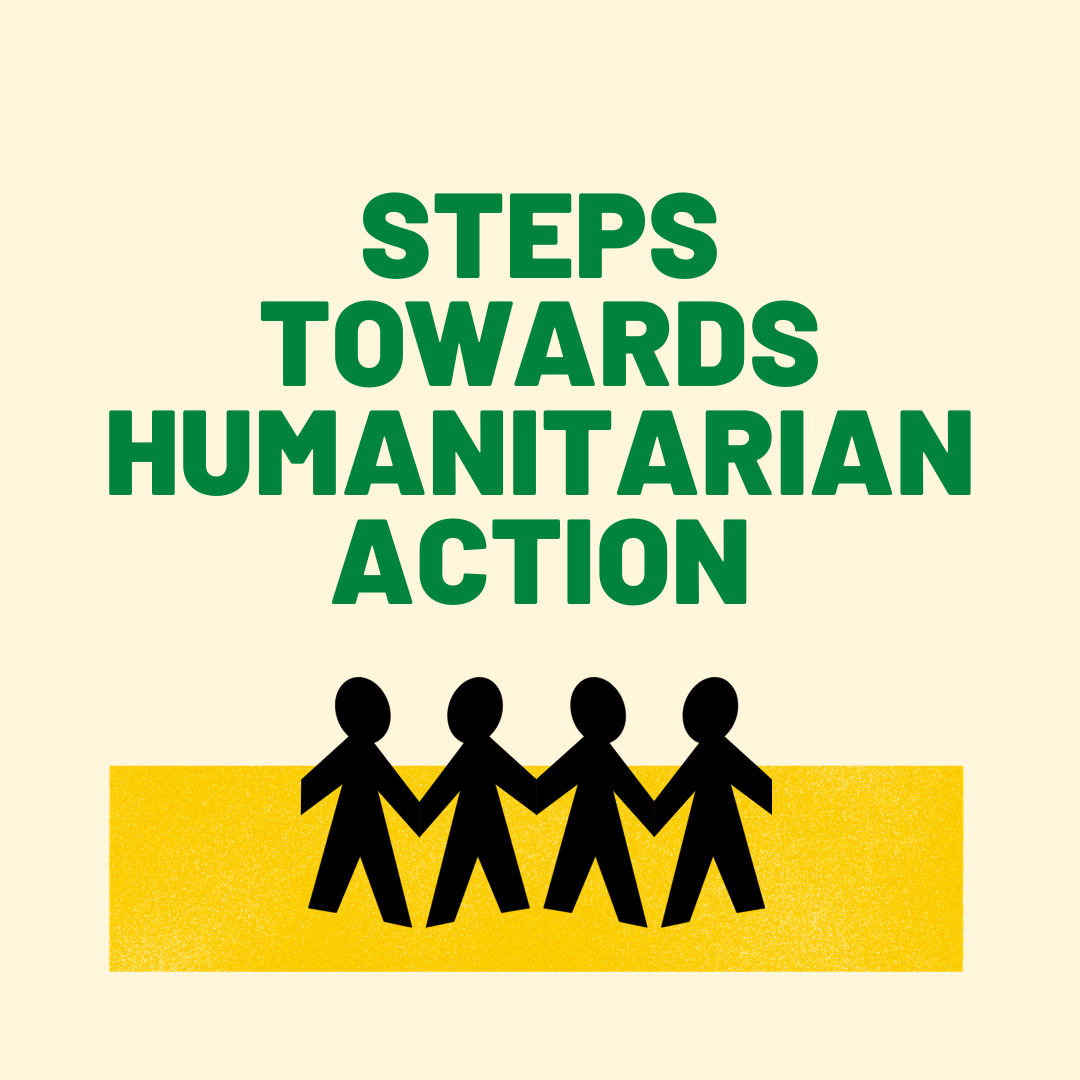Summary
Objectives
Today we face hugely increased number of humanitarian crisis, caused by conflicts, disasters and climate change. On behalf of the increased variations of such challenge, “Steps Towards Humanitarian Action” is a training course with two stages, aiming to uncover and analyze the ways how young people can lead and drive solutions in humanitarian action, among youth workers, young professionals, volunteers or trainers coming from EU and EECA region.
For that mission, training course aims to: raise awareness about humanitarian response to conflict and disaster; promote youth capacity building and share best practices in humanitarian settings; prioritize the rights, participation and leadership of young people; discover how young people can lead and drive solutions in humanitarian action; analyze key lessons for meaningful engagement of young people in humanitarian response; support the engagement of young people throughout the key stages of the humanitarian cycle; explore the tools of enabling humanitarian access to populations in need, such as refugees/asylum seekers and migrants; equip them with the skills, such as communication, critical thinking, empathy and problem-solving; provide a space for experience exchange; empower participants to use new competences farther in their target groups.
Activities
Two stages of training course will gather youth workers, young professionals, volunteers and trainers from 10 different countries. Throughout the project, participants coming from various cultural and social backgrounds will be involved non-formal educational sessions, workshops, simulation exercises and reflective discussions.
During the first phase of the project, participants will be introduced to key principles and concepts underlying humanitarian action and actors in the field of humanitarian response, strategic elements, current issues and challenges facing humanitarian sector. This stage will cover essentials of Humanitarian Action and Peacebuilding, Migration and Human Security; Special attention will be payed to vulnerable groups such as refugees and stateless persons.
After providing content and theoretical aspects, during second stage participants will be involved in deeper interdisciplinary learning frameworks. Main purpose of this stage will be to give opportunity participants of applying gained knowledge and experience to the causes of the crisis. Trainer will guide them through this process and help to develop know-how techniques of assessing the issues related to forced migration and human security and statelessness. Activity will present them with situations similar to those that they are likely to encounter on in cases of working with refugees or taking any humanitarian action.
Impact
This project is a source to reach target groups in a way that impact on each participant can cause a positive spillover effect on the bigger groups. For this project we expect participants to develop a number of competences through different activities, that will support their carrier path and the capacity to contribute into humanitarian issues. With the acquired competences participants and participating organizations will increase the self-awareness, reach the clearer consciousness about humanitarian crisis and analyze the aspects of how to take an action. This will greatly contribute into their goal setting. Creation of priorities to challenge issues reflected in the project, will inspire target groups to take an action. Taking an action by every each of us, baby steps or bigger ones, are the only effective ways to create a common effort and tackle grass-root causes of human suffering.
Overall, we expect that participants will be equipped with all the necessary ideas and tools to take steps forward and move from compassion towards humanitarian action.
Usually, awareness is one of the starting points towards action. We think that positive and successful outcome of this project, constructive impact on the participants will lead this topic to the bigger scale. Humanitarian issues and actions challenging them should be addressed more often and louder. This project will be one way to attract new attention, make other groups to take their own say and hopefully make their own steps towards humanitarian action. We foresee, the project and impact of this project can become an important part of a long chain that gets involved bigger number of humans, practical solutions and new resources to spread activism against human suffering, conflicts, disasters, and humanitarian crisis.

